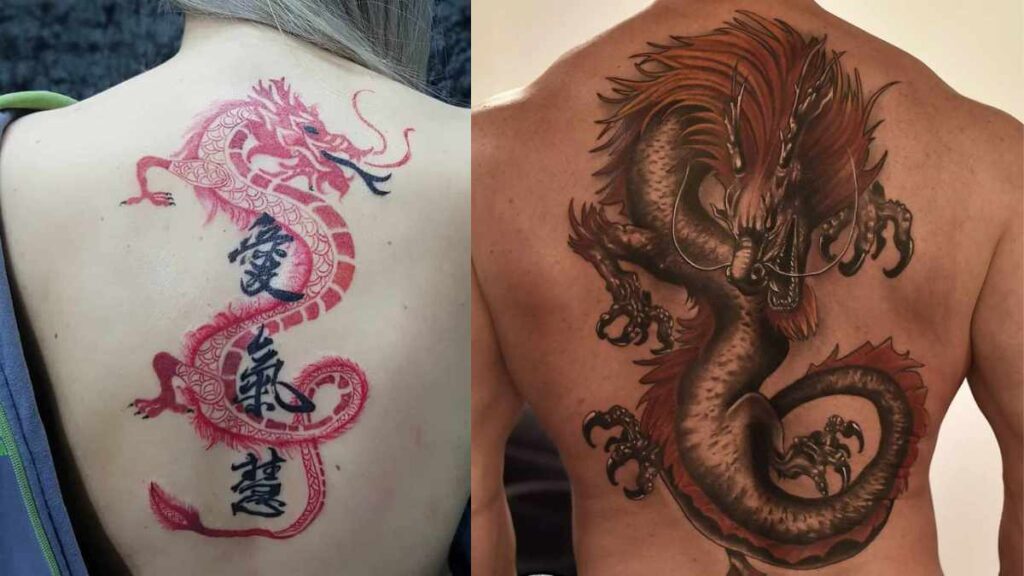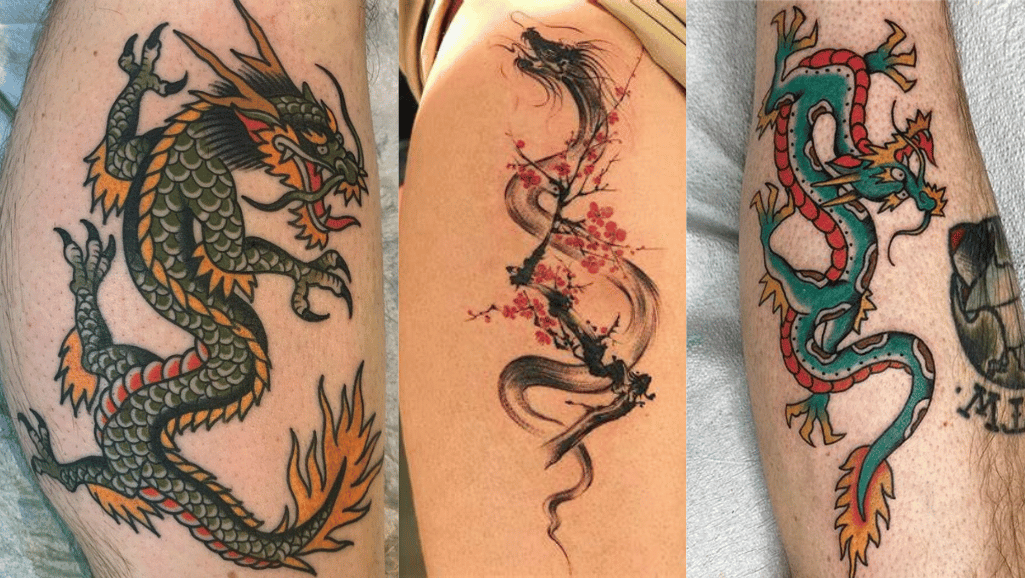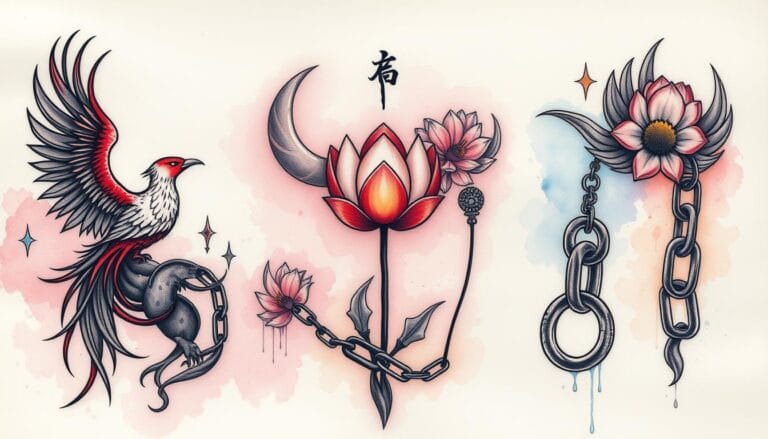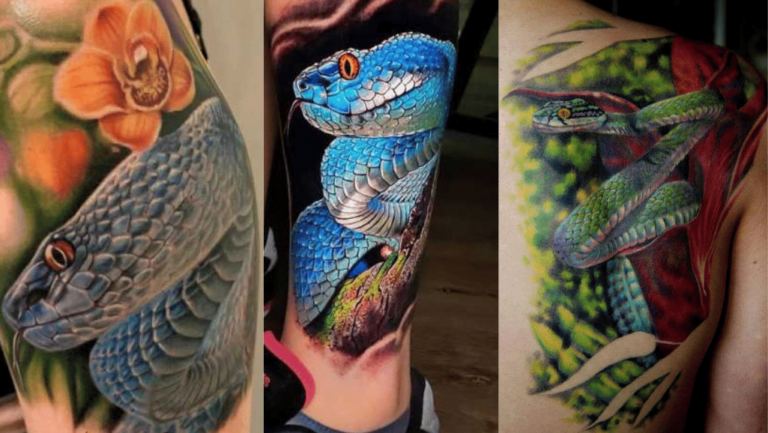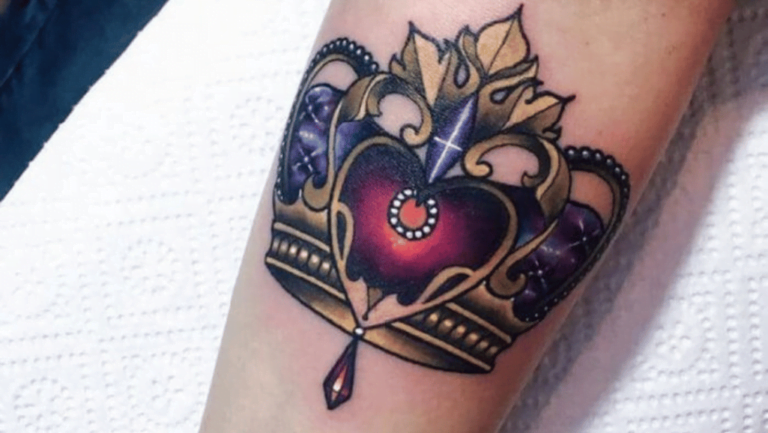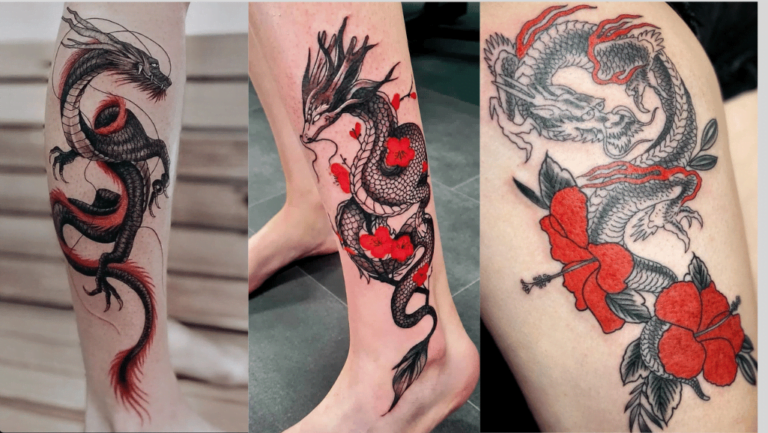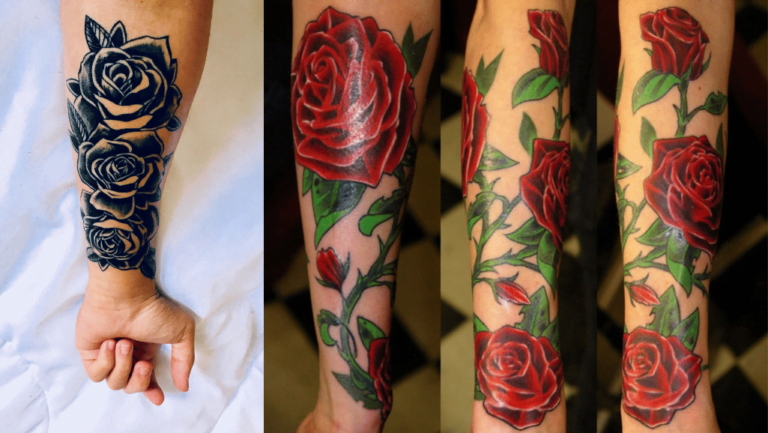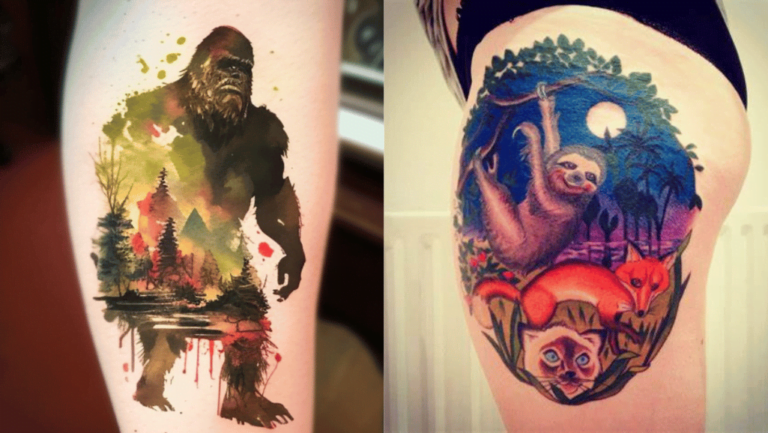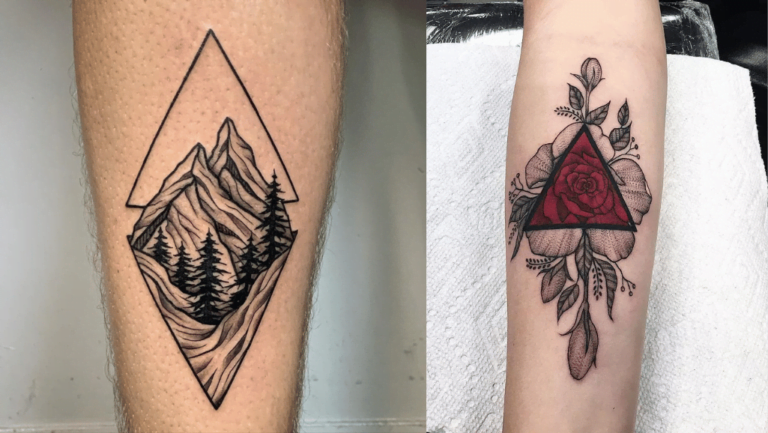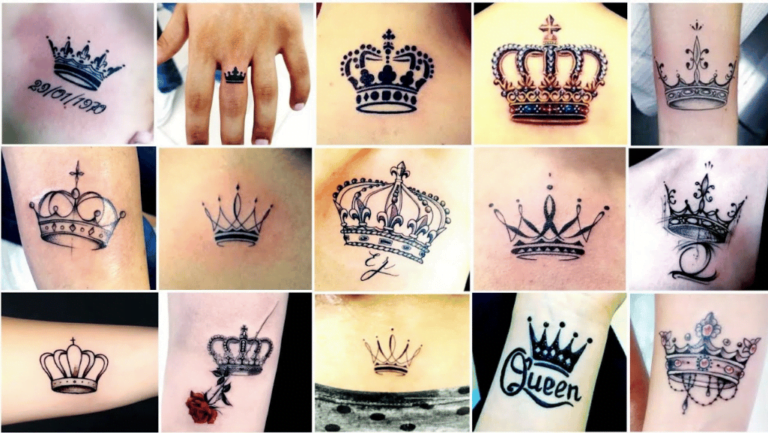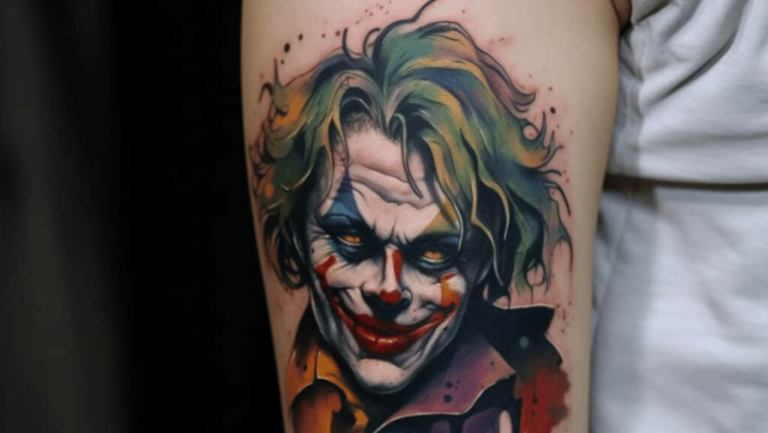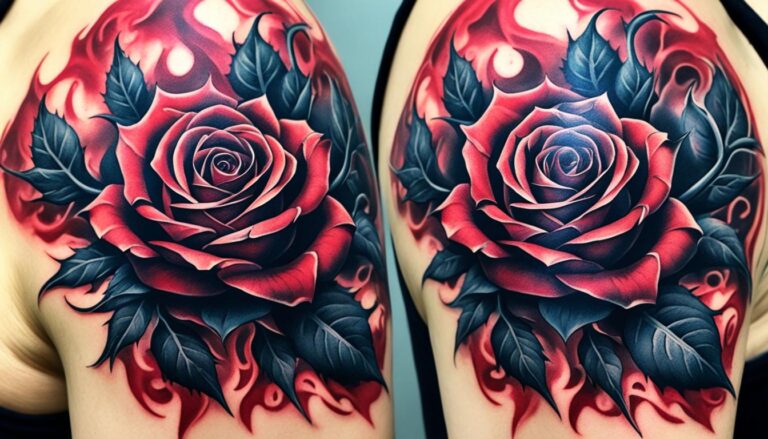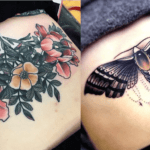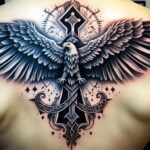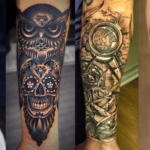A dragon tattoo holds deep meaning and symbolism, representing various attributes such as power, wisdom, courage, and nobility. Dragons have been revered in different cultures, each with their own unique interpretations. Chinese dragon tattoos symbolize strength, wisdom, good fortune, and spiritual power. They are also associated with protection, transformation, and divine blessing. Japanese dragons are believed to protect and guard families and homes, spreading happiness, freedom, and good luck. What does a tattoo of a dragon mean?
Key Takeaways:
- Dragon tattoos carry powerful symbolism and represent attributes such as power, wisdom, courage, and nobility.
- Chinese dragon tattoos symbolize strength, good fortune, and spiritual power, as well as protection and transformation.
- Japanese dragons are associated with protection, happiness, freedom, and good luck.
- Dragon tattoos hold different meanings in various cultures, offering individuals a range of choices and interpretations.
- Understanding the symbolism and cultural significance of dragon tattoos can help individuals choose a design that resonates with their personal values and beliefs.
History and Origins of Dragon Tattoos
Dragon tattoos have a rich history that dates back thousands of years. In Chinese culture, dragon patterns have been revered as auspicious symbols of power and imperial authority. The earliest Chinese dragon tattoos can be traced back to the Neolithic Age, featuring simple lines and the typical features of a dragon. As time passed, the designs became more complex and exquisite, vividly depicted on bronze ware during the Shang and Zhou dynasties. Dragon patterns were widely used in various art forms and became associated with traditional Chinese culture. During the Ming and Qing dynasties, dragon patterns were exclusively used for imperial purposes, symbolizing supreme power and noble status. Dragon tattoos have a long history in Chinese culture, representing strength and wisdom, as well as carrying cultural and historical significance.
Ancient Chinese Dragon Tattoos
During the Neolithic Age in ancient China, the earliest dragon tattoos featured simple lines and basic dragon characteristics. These early designs laid the foundation for the elaborate dragon patterns seen in later periods. As Chinese civilization progressed, so did the artistry and intricacy of dragon tattoos. The Shang and Zhou dynasties marked a significant shift, with dragon tattoos being vividly depicted on bronze ware and other art forms. These designs showcased the dragon’s powerful presence, highlighting its association with strength, wisdom, and authority.
Symbolism and Cultural Significance
Chinese dragon tattoos hold immense symbolism and cultural significance. The dragon is seen as a symbol of power, wisdom, and good fortune. It is also believed to possess spiritual power and the ability to bring blessings. As such, dragon tattoos are often chosen to represent strength, protection, and transformation. Additionally, these tattoos reflect the historical and cultural heritage of China, signifying the nation’s rich traditions and imperial past.
“Dragon tattoos have been revered in Chinese culture for centuries, embodying power, wisdom, and good fortune. The intricate designs and vivid depictions showcase the cultural significance and historical heritage associated with these tattoos.” – Dr. Li Mei, Cultural Historian
The deeply rooted history and symbolism of Chinese dragon tattoos make them a popular choice for those seeking to express strength, wisdom, and a connection to Chinese culture. These tattoos not only embody the ancestral traditions but also offer a sense of empowerment and mystique to the wearer.
Symbolism of Chinese Dragon Tattoos
Chinese dragon tattoos hold deep symbolism, representing attributes such as power, wealth, wisdom, and bravery. In ancient China, the dragon was the exclusive symbol of the Emperor, representing supreme power and noble status. Dragon tattoos connote power and authority, with many individuals choosing them to express pursuit and admiration of power and position. Dragons in Chinese culture are also viewed as symbols of prosperity and luck, believed to bring favorability and riches to those who don them. Additionally, dragon tattoos signify wisdom and bravery, as dragons are seen as symbols of discernment and valor.
However, there are certain taboos associated with Chinese dragon tattoos, such as not coloring the eyes, avoiding three or five-clawed dragons, and considering one’s health before getting the tattoo. Chinese dragon tattoos should also be accompanied by water, as dragons are associated with water and clouds.
Chinese dragon tattoo meaning can vary depending on the individual’s beliefs and intentions. While the common symbolism signifies power, wealth, wisdom, and bravery, the personal significance of the tattoo can be shaped by the wearer’s own experiences and aspirations.
Dragon Tattoos in Different Cultures
Dragon tattoos have diverse meanings across cultures, each offering unique interpretations and symbolism. Let’s explore the significance of dragon tattoos in Japanese, Vietnamese, Celtic, and Eastern cultures.
Japanese Dragon Tattoo Meaning
In Japanese culture, the dragon holds a prominent place, symbolizing protection, luck, and strength. The Japanese dragon, known as “Ryū,” is regarded as a benevolent creature associated with happiness, freedom, and good fortune. It is often depicted with intricate details, vibrant colors, and a serpentine body.
Vietnamese Dragon Tattoo Meaning
In Vietnamese culture, the dragon represents power and nobility. The Vietnamese dragon, commonly referred to as “Rồng,” is depicted in an “S” shape and is surrounded by thunder and lightning. This design conveys strength, protection, and authority.
Celtic Dragon Tattoo Meaning
Celtic dragon tattoos are rooted in ancient Celtic folklore and symbolize the cycle of life and nature. These tattoos often feature intricate knotwork and unending lines, embodying the ups and downs of life. Celtic dragons represent wisdom, strength, and rulership.
Eastern Dragon Tattoo Meaning
Eastern dragons, also known as oriental dragons, are considered sacred creatures in East Asian cultures. They symbolize balance, wisdom, and protection. Eastern dragon tattoos carry a deep spiritual meaning, representing good fortune and guarding the heavens.
Each of these cultures brings a unique perspective and symbolism to dragon tattoos, allowing individuals to choose a design that resonates with their personal beliefs and values.
| Culture | Meaning |
|---|---|
| Japanese | Protection, luck, and strength |
| Vietnamese | Power and nobility |
| Celtic | Cycle of life and nature |
| Eastern | Balance, wisdom, and protection |
Dragon Tattoos in History and Folklore
Throughout history, dragons have captivated cultures worldwide with their symbolism of power, freedom, and chaos. These mythical creatures have played significant roles in various mythologies and ancient civilizations, evoking both reverence and fear.
In Middle Eastern cultures, dragons were portrayed as colossal beings of immense power and unpredictable nature, striking awe and terror into the hearts of people. Ancient Egypt also held dragons in high regard, viewing them as potent and destructive forces that symbolized renewal and eternity.
The portrayal of dragons in Asian cultures, especially in China, is markedly different. Here, dragons are revered as noble creatures embodying wisdom and protection. They are considered symbols of strength, good fortune, and spiritual guidance.
European mythology offers contrasting depictions of dragons. In some folklore, dragons are seen as dark and malevolent forces, associated with evil and destruction. However, in other tales, dragons represent divine beings or gods, possessing immense wisdom and power.
In Celtic symbolism, dragons hold positive associations, embodying rulership and representing the cyclical nature of life. They are often depicted with intricate designs of knots and unbroken lines, symbolizing the interconnectedness of all things.
| Dragon Symbolism in Different Cultures | Dragon Interpretation |
|---|---|
| Chinese Culture | Noble beasts offering wisdom, protection, and good fortune. |
| Japanese Culture | Protective and lucky symbols associated with happiness, freedom, and good luck. |
| Vietnamese Culture | Represent power and nobility, often depicted in “S” shape surrounded by thunder and lightning. |
The rich history of dragons in human culture has made them popular choices for tattoos, allowing individuals to embody their symbolism and convey personal beliefs and values.
The history and folklore surrounding dragon tattoos add depth and significance to this enduring art form. These tattoos serve as reminders of our fascination with these mythical creatures, their powerful symbolism, and their enduring presence throughout human history.
Dragon Tattoos: Meaning & Symbolism
Dragon tattoos carry various meanings and symbolisms. They can represent absolute power, auspiciousness, goodwill, destruction, evil, and independence. Dragons are often seen as lone creatures, highly intelligent and unbound, symbolizing freedom. The color of the dragon in a tattoo can also hold meaning, with black representing wisdom, green representing life, blue representing compassion and forgiveness, yellow representing helpfulness and self-centeredness, and gold representing kindness. The versatility of dragon tattoos allows individuals to choose a design and symbolism that resonates with them personally. From East Asian dragon tattoos with vibrant colors and intricate details to European-inspired designs with hyperrealistic features, there are endless possibilities to create a unique and meaningful dragon tattoo.
Dragon tattoo symbolism is rich and diverse, offering individuals the opportunity to express their values and beliefs through this ancient art form. A dragon tattoo can represent power and strength, capturing the essence of these mythical creatures. It can also signify auspiciousness and good fortune, bringing luck and prosperity to the wearer. Additionally, dragon tattoos can convey destruction and evil, reflecting a darker side and a desire to embrace rebellion and independence.
“Dragons are not only powerful creatures but also symbols of our drive for freedom and self-expression. A dragon tattoo can serve as a reminder to embrace our inner strength and boldly face life’s challenges.”
Dragon tattoos are often depicted as lone creatures, roaming the skies with majestic grace. This portrayal spotlights their intelligence and independence, making them a symbol of freedom. Dragons can be seen as a reflection of our yearning for personal liberation and the courage to carve our own path.
When it comes to the color of a dragon tattoo, each shade carries its own significance. Black dragons symbolize wisdom and mystery, invoking a sense of intrigue and deep insight. Green dragons, on the other hand, represent life and vitality, emphasizing growth and renewal. A blue dragon signifies compassion and forgiveness, serving as a reminder to be kind and understanding. A yellow dragon embodies helpfulness and self-centeredness, reminding us to prioritize both ourselves and others. Lastly, a gold dragon reflects kindness and generosity, urging us to embrace empathy and benevolence.
The meaning and symbolism of a dragon tattoo can be further enhanced through the design itself. For those drawn to East Asian culture, vibrant colors and intricate details in the style of East Asian dragon tattoos can symbolize cultural heritage and represent auspiciousness. On the other hand, European-inspired dragon tattoos with hyperrealistic features can emphasize the raw power and majestic nature of these mythical creatures.
Tattoo it with Meaning
To summarize, dragon tattoos hold a myriad of meanings and symbolisms. They can represent power, independence, auspiciousness, destruction, and much more. The choice of color and design allows individuals to infuse their personal meaning into their dragon tattoo, creating a unique and meaningful piece of art on their skin.
Conclusion
Dragon tattoos have a rich history and powerful symbolism in various cultures, representing attributes such as power, wisdom, courage, and nobility. These tattoos hold different meanings depending on the specific cultural context and design chosen. For those seeking strength and good fortune, a Chinese dragon tattoo offers a symbol of power and auspiciousness. On the other hand, a Japanese dragon tattoo represents protection and good luck, while a Celtic dragon tattoo depicts the cyclical nature of life.
Dragon tattoos provide individuals with the unique opportunity to express their personal values and beliefs. With the wide range of cultural interpretations and symbolism associated with dragon tattoos, there is a design to suit every individual’s preferences and desires. Whether someone chooses an East Asian dragon with vibrant colors and intricate details or a European-inspired design with hyperrealistic features, the versatility of dragon tattoos allows them to create a meaningful and personalized piece of body art.
By adorning themselves with dragon tattoos, people can tap into the rich history and symbolism behind these majestic creatures. They can embody attributes such as power, wisdom, courage, and nobility, while also embracing the cultural significance of different dragon tattoo designs. Dragon tattoos serve as a powerful form of self-expression, enabling individuals to showcase their values and beliefs through an ancient and meaningful art form.
FAQ
What does a tattoo of a dragon mean?
What is the significance of dragon tattoos?
What does a dragon tattoo mean?
Can you explain the symbolism behind dragon tattoos?
What is the spiritual meaning of a dragon tattoo?
What is the cultural significance of dragon tattoos?
How can I interpret the meaning of my dragon tattoo design?
Forhad
Forhad's writing is not just about the artistry of tattoos or the latest trends in the industry; it's an exploration of the deep-rooted connections people have with their tattoos, reflecting personal narratives, cultural histories, and moments of transformation. Through a mix of in-depth features, personal narratives, and insightful analyses, he sheds light on the multifaceted nature of tattooing, revealing the emotional and cultural layers that lie beneath the surface.



